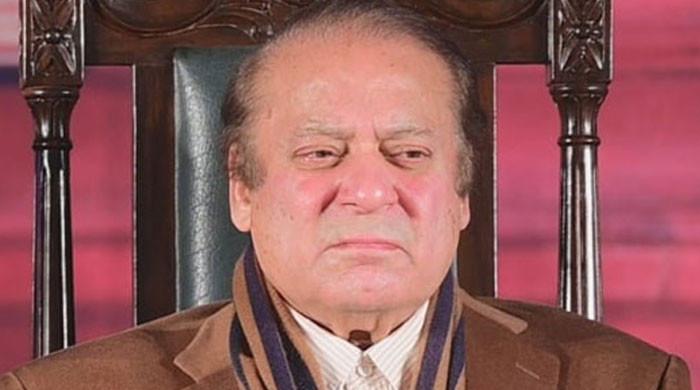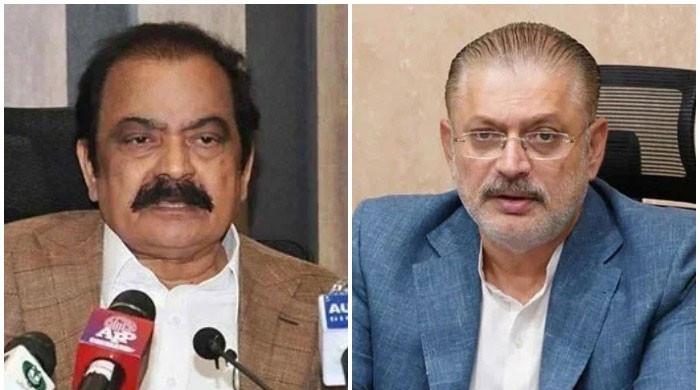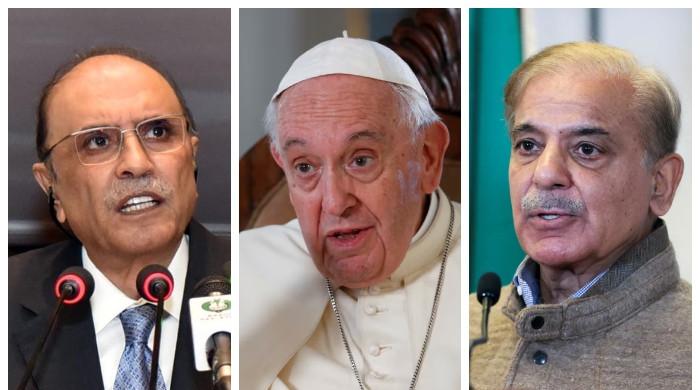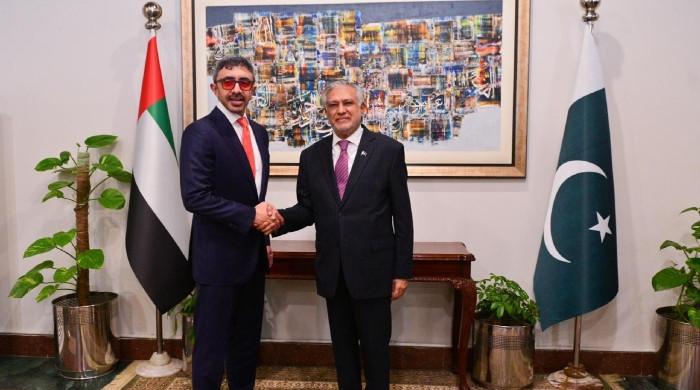'Sunni Ittehad Council not entitled to reserved seats', AGP tells PHC
PHC five-member bench adjourns hearing on SIC plea till Thursday at 9am
March 13, 2024
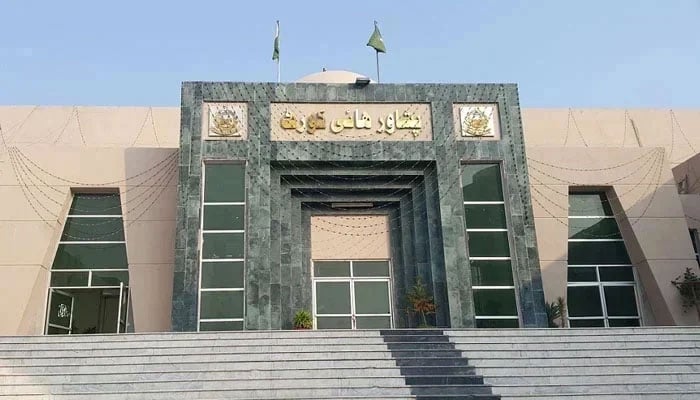
- AGP Awan highlights SIC's failure to submit list for reserve seats.
- Justice Ishtiaq hints at incomplete parliament amid vacant seats.
- Judge says court would revoke interim relief provided by the court.
PESHAWAR: Attorney General for Pakistan (AGP) Mansoor Usman Awan on Wednesday told the Peshawar High Court (PHC) that Pakistan Tehreek-e-Insaf (PTI)-backed Sunni Ittehad Council (SIC) is not entitled to reserved seats as the party did not submit a list to the Election Commission of Pakistan (ECP) before the general elections 2024.
A five-member bench led by PHC Chief Justice Mohammad Ibrahim Khan and comprising Justice Ijaz Anwar, Justice Ishtiaq Ibrahim, Justice Shakeel Ahmad and Justice Arshad Ali took up the SIC's plea against the ECP’s ruling wherein it had denied allocating the reserved seats to the party.
The electoral body, on March 4, had accepted applications of the opposing parties and decided that the seats in the National Assembly and provincial assemblies would not remain vacant and would be allocated by a proportional representation process of political parties on the basis of seats won by political parties.
During the hearing of the case today, the PHC expressed displeasure over the absence of PTI counsels Barrister Ali Zafar and Babar Awan.
SIC counsel Advocate Qazi Anwar argued before the bench that the PTI-backed independent candidates joined the SIC after winning the election, hence the party is eligible for the reserved seats for women and minorities.
AGP Awan told the court that the reserved seats cannot be awarded to the SIC in any case because the party did not submit a list to the ECP for reserved seats.
Moreover, the AGP said the SIC does not have a single seat in parliament and its chairman also contested the February 8 election as an independent candidate.
Subsequently, the PHC adjourned the hearing on the case till tomorrow (Thursday) at 9am at the request of Advocate General Shah Faisal Utmankhel.
The electoral body, on March 4, had accepted applications of the opposing parties and decided that the seats in the National Assembly and provincial assemblies would not remain vacant and would be allocated by a proportional representation process of political parties on the basis of seats won by political parties.
The development resulted in PTI-backed SIC losing a total of 77 reserved seats including 23 National Assembly seats (20 women and 3 minorities), 25 Khyber Pakhtunkhwa Assembly seats (21 women and 4 minorities), two Sindh Assembly seats (women) and 27 Punjab Assembly seats (24 women and 3 minority).
Following the ECP's verdict, the SIC secured a stay order from the PHC wherein the court had barred the oath-taking of lawmakers notified on reserved seats denied to the party.
However, despite the court's order, four MNAs elected on reserved seats had taken oath in the lower house amid protest by the opposition benches who were told that neither NA Speaker Ayaz Sadiq had received the PHC's against oathtaking of members nor the lawmakers who were sworn-in belonged to the KP.
Last week, PHC Chief Justice Ibrahim Khan clarified that those to were sworn in in the National Assembly (NA) in light of the PHC order "did not commit contempt of court" and that the court's stay order was limited to KP.
Today's hearing
At the onset of the hearing today, AGP Awan stressed that the SIC didn't participate in the elections, adding that reserved seats are only allocated to parliamentary parties.
He further underscored that the SIC didn't submit any list for allocation of reserved seats.
During the hearing, Justice Ishtiaq questioned whether any SIC candidate secured victory in the February 8 polls to which SIC's lawyer Qazi Anwar replied in the negative.
"Parliament would not be [considered] complete if reserved seats are left vacant," the judge said adding that the court would revoke the interim relief given in the said case.
Highlighting that the SIC chief himself contested the election as an independent candidate, Justice Arshad inquired about whether the SIC submitted the list for allocation of reserved seats by February 21.
To this, the petitioner's lawyer said that the SIC only submitted the list for reserved seats after the PTI-backed independent candidates had joined the party.
'SIC not a parliamentary party'
The AGP, during his arguments, explained the process of political parties acquiring reserved seats in the Parliament. He added that the Constitution does not allow for a vacant seat in Parliament, but it also doesn’t compel anyone to join a particular party.
“There are consequences if priority list is not given within the stipulated time,” he said, commenting on the list of names to be given by parties for reserved seats.
Justice Shah reiterated that SIC is a registered party with the ECP.
Justice Ibrahim asked AGP if the court can declare Section 104 “unconstitutional” if it arrived to the conclusion that it is inconsistent with the Constitution.
AGP Awan said that SIC is a political and not a parliamentary party because it hasn’t won a seat.
Justice Arshad said there is no mention of this in the law.
When ECP lawyer Sikandar Bashir Mohmand stood at the rostrum, the court asked him if he supported the AGP’s arguments. He responded to the question in the affirmative.
'Mandatory to win one seat'
When the court remarked that a party will gain majority in the Parliament if independent candidates join it, the AGP said that the condition of submitting the list of reserved seat members will still not be fulfilled.
“The condition that is in Article 51 and Section 104 of the Election Act will not be fulfilled,” he maintained.
The court asked AGP if an independent candidate can be given reserved seats if it joins the party. “
“[It] can be given but if there is any representation of this party in the parliament,” the AGP said, concluding his argument.
The ECP lawyer, starting his arguments, said that while the SIC is a registered party, it is mandatory for it to win at least one seat in the Parliament and requested the bench to decide whether the interpretation of the existing law is correct or incorrect with regard to this matter.
“The formula is simple, one seat is mandatory,” the lawyer said.
“According to Section 104 of the Election Act, the petitioner party is not a political party. The SIC did not participate in the election and did not fulfil other conditions. It is mandatory for a political party to participate in elections under its symbol,” he argued, adding that the SIC did not participate in the general elections.
He also maintained that the list for reserved seats must also be submitted before the last date.
The court remarked that the party did not submit the list first.
“At present, there is no solution to this problem in the law,” said Justice Arshad.
The judge questioned if the problem be sent to the Parliament to resolved. The ECP lawyer said it was not his jurisdiction and the AGP should be referred to address the query.
“After the last date, there are clear decisions of the Supreme Court,” the ECP counsel said, adding that the reserved seats are listed on Form 66, but SIC has not given the specific form.
He added that the Form 66 has to be submitted to the ECP, but SIC only requested that independent candidates have joined a political party and they should be given seats.
"I am of the view that they are not a political party," the ECP's lawyer said.
"Is SIC not a political party? Since they have members in the parliament, they are [to be considered] as a political party," responded Justice Arshad.
Meanwhile, taking the rostrum once again, AGP Awan said that the reserved seats cannot be left vacant.
On Justice Shakeel's question whether the reserved seats can be distributed among other political parties, Awan said that the reserved seats are attributed to the provinces and not political parties.
Meanwhile, presenting his arguments Pakistan Peoples Party's (PPP) Farooq H Naek concurred with the AGP Awan and stressed that the SIC is not eligible for reserved seats since the party didn't even win a single seat in the general elections.
"How can someone [independent candidates] can join a party that has no seats?" Naek questioned while adding that the party didn't even contest the polls to begin with.
Representing Jamiat Ulema-e-Islam-Fazl (JUI-F) in the case, Kamran Murtaza echoed the AGP arguments and stressed that the SIC didn't contest the polls and therefore isn't eligible for reserved seats.
Meanwhile, lawyer Amir Javed — representing Shehla Bano, one of the party's in the petition — underscored ECP's autonomy with regard to its decision over the allocation of reserved seats.
Subsequently, SIC's lawyer Anwar requested the court to give him one hour to prepare his arguments for the case.




